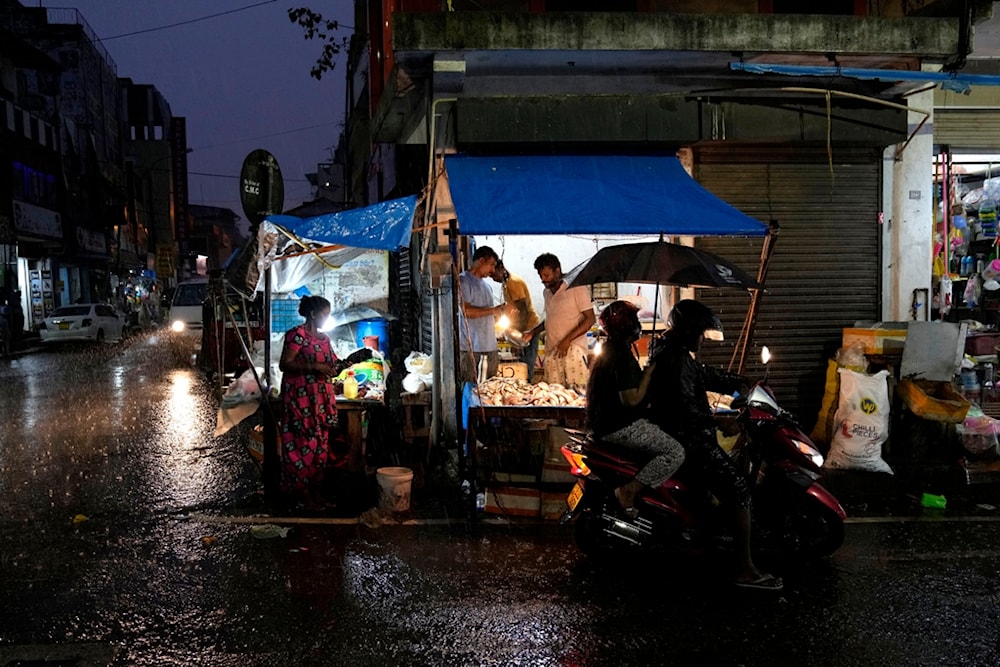Sri Lanka's inflation drops to record low ahead of key election
The Central Bank of Sri Lanka expects overall inflation in 2024 to remain well below five percent.
-

Roadside vendors wait for customers at a marketplace in Colombo, Sri Lanka, Friday, Dec. 8, 2023 (AP)
Crisis-hit Sri Lanka's annual inflation rate sharply fell to 0.5 percent in August, marking the lowest year-on-year rate since the country declared bankruptcy in April 2022, according to official data released on Friday.
This significant drop in inflation comes three weeks before Sri Lanka's first election since an unprecedented economic crisis that led to widespread shortages of food, fuel, and pharmaceuticals.
In comparison, inflation was at 2.4 percent in July and 4.0 percent in August of the previous year.
The country faced a peak inflation rate of nearly 70 percent during the height of the crisis, which also resulted in severe civil unrest and forced then-president Gotabaya Rajapaksa to flee the country and resign from abroad.
Read more: Sri Lanka plans to cut third of its military by 2030, contain economy
The Census and Statistics Department attributed the current decline in inflation to reductions in electricity and water tariffs, fuel prices, and housing costs.
Looking ahead, the Central Bank of Sri Lanka expects overall inflation in 2024 to remain well below five percent.
Meanwhile, opposition parties have vowed to renegotiate the terms of an International Monetary Fund (IMF) bailout that was secured by President Ranil Wickremesinghe in early 2023 following the economic collapse.
Sri Lanka's collapsed economy
Former Sri Lankan President Mahinda Rajapaksa's tenure saw the launch of the Hambantota Development Project, which was considered one of the white-elephant projects during his decade-long rule until 2015.
In 2017, unable to repay a substantial loan taken from China for the construction of the Hambantota port, Sri Lanka transferred it to the state-owned China Merchants Group for $1.12 billion under a 99-year lease.
In April 2022, Sri Lanka defaulted on its $46 billion external debt when it ran out of foreign exchange to cover essential imports like food, fuel, and medicine, causing a record 7.8% GDP decline.
To address its financial woes, Sri Lanka secured a $2.9 billion bailout from the International Monetary Fund (IMF) last year. However, the IMF program is contingent on reaching a debt agreement satisfactory to foreign creditors.
China reaffirmed its commitment to supporting Sri Lanka in March 2024, as the prime minister of the crisis-stricken island nation concluded a visit to Beijing to finalize a debt restructuring agreement.
Read more: Hard times to follow IMF bailout, warns Sri Lanka president

 3 Min Read
3 Min Read








